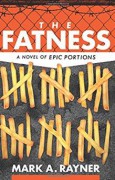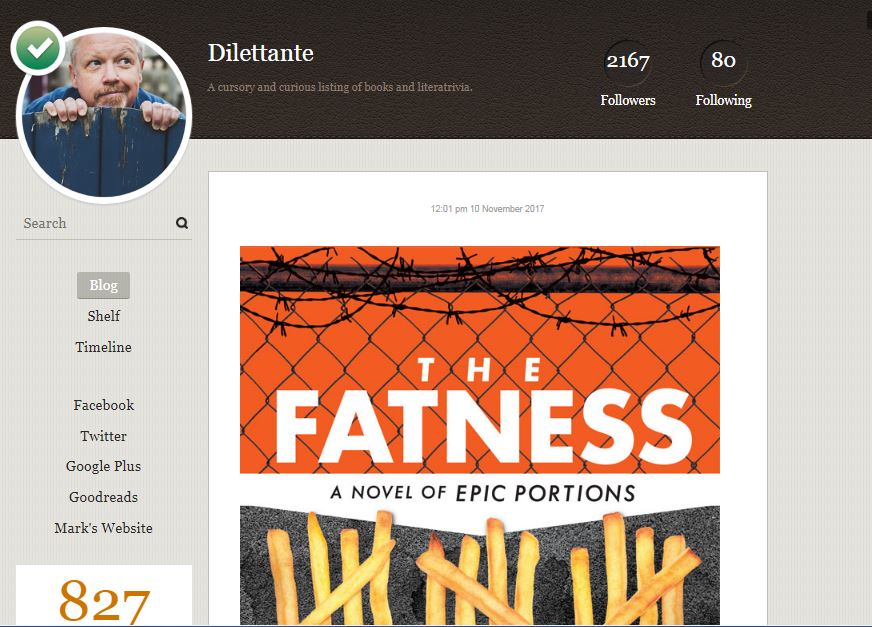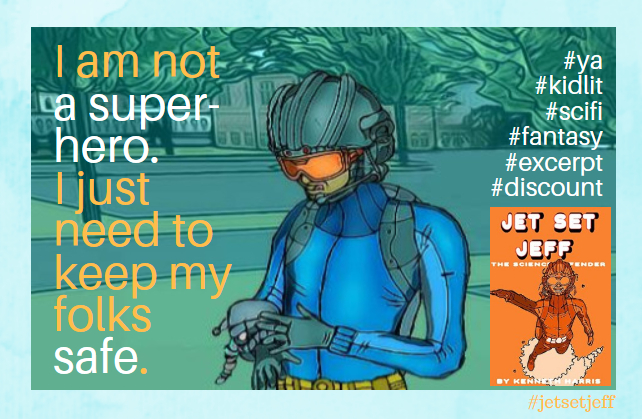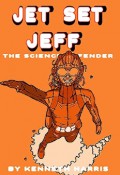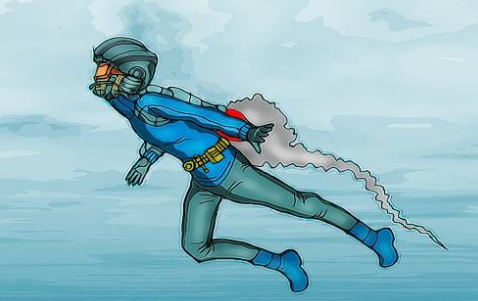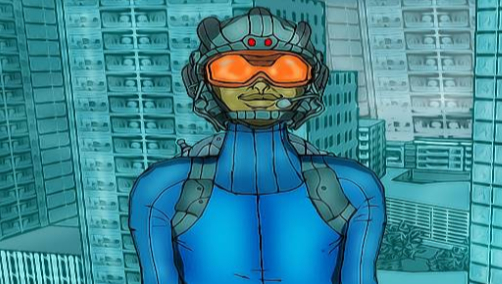
Many of you already know Mark A. Rayner aka Dilettante (you can follow Mark's blog on BookLikes here). Now it's time to know Mark's story a little bit better. With his new release The Fatness Mark also reveals a look behind the scenes of his newest book!
If you're hungry of great stories, make sure to request The Fatness copy in here. Enjoy and bon appetite!
-- a guest post by Mark A. Rayner
The Fatness – a novel of epic portions
![]() Canadian author Mark A. Rayner’s timely new book, The Fatness, is a satirical take on how not to deal with the so-called obesity “epidemic”. The novel posits a world in which the government gives those who are obese a simple choice: relinquish their publicly funded healthcare or go to a special Calorie Reduction Center (CRC) to lose the weight.
Canadian author Mark A. Rayner’s timely new book, The Fatness, is a satirical take on how not to deal with the so-called obesity “epidemic”. The novel posits a world in which the government gives those who are obese a simple choice: relinquish their publicly funded healthcare or go to a special Calorie Reduction Center (CRC) to lose the weight.
Mark is offering three copies as a giveaway here.
Behind the scenes:
why The Fatness was a difficult book to write
by Mark A. Rayner
It was personal.
Writers might say that of any book, true, but this novel was a particular challenge. I’ve struggled with weight issues most of my life, so I found it quite difficult to write a humorous account of what it would be like to be imprisoned for your weight.
Really difficult.
Like many of my novels, the idea for The Fatness first came to me in a dream. I’d been reading The Obesity Myth, by Paul Campos. It’s an eye-opening non-fiction about the bad science surrounding the idea of the obesity “epidemic”. That was sometime in 2005, the year ENC Press published my first book, The Amadeus Net.
In the nightmare, I was imprisoned in a Calorie Reduction Center, a concentration camp for the obese. When I awoke, I thought, so that’s a horrible notion. Terrifying. And strangely compelling. Should I even put this terrible idea out in the world? I wondered. Would readers know it was meant to be a satire?
I’m an optimist, so I wrote four chapters. They were bad. There was nothing funny about the book. It wasn’t biting satire, it was just bitter.
I made several other attempts, all failures. Six years ago I even got as far as completing an outline and a large chunk of a draft. But it wasn’t really what I wanted the book to be. It was strained and really not funny in a way that was compassionate for the inmates of the Calorie Reduction Centers.
Then five years ago I got serious about my own weight issues. I worked with two wonderful personal trainers and got my BMI – my body mass index – down below the dreaded 30 BMI for the first time in years. For some reason, that gave me the ability to write the book. I think I needed to understand the process of losing weight so that I could communicate its challenges properly. Within the course of a year, I wrote a completely new draft of the book.
Giveaway
Ends December 18, 2017
REQUEST YOUR COPY ->
The biggest task, from a writing perspective, was to get the tone right. I didn’t want this to be an exercise in telling fat jokes. That is part of the problem, as far as I see it – we tolerate jokes about somebody’s weight in a way that we wouldn’t allow for other characteristics, such as race or sexuality. So pitching the humor in a compassionate way was important to me.
I think I learned how to do it by reading the work of Kurt Vonnegut, one of my literary heroes. I share his take on humanity. We are flawed, but we’re not worthless. It’s the opposite, really. Our flaws make us different, and our differences make us valuable.
A satire also has to be critical. Another way in which my writing is similar to Vonnegut’s is that we make fun of pretension and large-scale human systems. We’re suspicious of both. Pretension is a symptom of hypocrisy. This pitfall is only possible when we humans start believing our own lies.
The other major target, as far as I can see, has to be the way that humans are terrible at taking good ideas and turning them into governing principles. The human component seems to get lost as soon as we scale things up to the level of large systems.
Obesity is a complicated problem, and it’s not realistic to think we’re going to find simple solutions. There’s a genetic component to obesity – recent studies indicate it may be caused by a single gene. There are societal, financial and emotional components to it as well. Until we understand how all of these things fit together, it’s going to be a difficult issue to address. Blaming people for their weight issues is certainly not going to help.
After I got my own weight problems under control (for a little while) and finished the rough draft of the book, the following year I worked with my editor and produced two more drafts. Then my life got really complicated. My long-term relationship ended, my dog died, and I started a new and extremely challenging work position. (Sounds like a bad country and western song, doesn’t it?) So it took a few more years until I was ready to start the publishing process. Yeah, sometimes it takes that long.
This twelve-year project, from idea to publication, is the longest gestation period for a book I’ve written. By comparison, my first novel, The Amadeus Net, was a breeze – it only took ten years from start to finish.
But I think The Fatness is the best book I’ve written (so far), and the positive reviews seem to back up that feeling. I’m particularly pleased that readers feel the book is satirical, yet has a big heart that is compassionate for people struggling with obesity.
As the reading and writing process taught me, there are no easy answers.
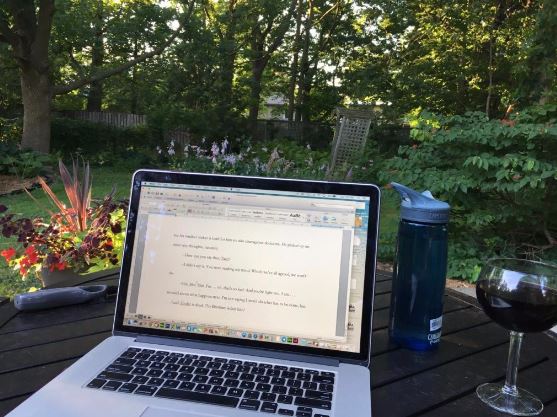
Mark’s favourite writing space: in the garden.
The Fatness is a metaphor
I hope this is a story that can be read on many levels and enjoyed in different ways. I don’t think this is a spoiler, but it’s fair to say that there is a metaphor at the heart of this book.
If you buy into the notion of duality, you accept the idea that you are a consciousness riding around in a body. I think many fat people experience this every time they look in the mirror. I know I do. I don’t feel overweight, but there’s the proof of it right there in front of me. The idea that you might be physically incarcerated because of your body is a metaphor for how an obese person might feel every day: a thin person looking out at a fat one. That’s a paraphrase of the Cyril Connolly quotation: “Imprisoned in every fat man a thin one is wildly signaling to be let out.”
There’s some truth to it, in the same way that as we get older, we may experience the truth of Terry Pratchett’s observation: “Inside every old person is a young person wondering what the hell happened.”
But the thing is, that thin person, that young person, is a reflection of societal values. If you engage with any media, it’s impossible to avoid the idea that what matters is being thin, being young, being beautiful, being successful, and being famous. We see ourselves that way – we judge ourselves that way – even when these ideas have nothing to do with our worth as human beings.
The Fatness is an attempt to get people to recognize how media can have an impact on how we see ourselves and each other.
So my hope is that readers will be affected by the book. My hope, if they’re fat, is for them to feel less alone, to feel less guilty about their physicality. For the non-obese, I hope they get an understanding that nobody wants to be fat. It’s not a choice. And it’s not just laziness. Many fat people spend their entire lives trying not to be fat. I know that I have.
On a lighter note (pun intended), my goal is to make readers laugh. There are lots of things the book spoofs, and your political affiliations really don’t matter. Every reader will find something to enjoy. It makes fun of socialism. It makes fun of capitalism. And it makes fun of human foibles.
If nothing else, readers should come away with a sense of how absurd our bureaucracies can be, and how even the best intentions can go wildly astray. Even science.
Discovering more about medical science
I learned quite a bit while I was penning this novel. While the facts, myths, and quotes between the chapters – I call them ‘interstitials’ – are meant to be fun, they actually helped me discover more about obesity, body image, and the research process. I learned, for example, that science is very much a human process, prone to error and flaws. What we “know” today could easily turn out to be “wrong” the next. A tragic example of this is what happened in the ’50s and ’60s, when the medical profession decided that dietary fat was the enemy.
Ironically, I think this is one of the major contributing factors to the increase of obesity in society. This is terribly simplistic, but we substituted carbs for fat in our diets – and not just good carbs, like vegetables and fruits. We added in highly processed carbs, which are probably okay for us in limited amounts, but not if they make up the bulk of our diet.
I also learned how the food industry works. (It’s kind of shocking, in some cases.) I certainly didn’t realize that corporations were actively pushing unhealthy food at us to fatten up their bottom line. That probably makes me seem naive, but until I started digging into the subject, I really hadn’t thought about it much.
I learned about the importance of body image – on both sides of the BMI. I learned how damaging it is to shame people for being either too fat or too thin. Even if the intention is to help people become healthier, shame is actually counterproductive when it comes to weight management.
Finally, I discovered that keeping the weight off is just as hard as losing it. But that’s a topic for a sequel. (And maybe a psychotherapist.)
About Mark A. Rayner

Mark A. Rayner. Author. Mustache twirler. Photo by David Redding Photography, 2013.
Human-shaped, simian-obsessed, robot-fighting, pirate-hearted, storytelling junkie Mark A. Rayner is an award-winning writer of satirical and speculative fiction.
By day, Mark teaches his bemused students at the Faculty of Information and Media Studies (at Western University) how to construct social media campaigns and viable information architectures that will not become self-aware and destroy all humans. By night he is a writer of short stories, novels, squibs and other drivel. (Some pure, and some quite tainted with meaning.)
Many cheeseburgers were harmed in the making of this novel.
Mark A. Rayner's books:

 Log in with Facebook
Log in with Facebook 

